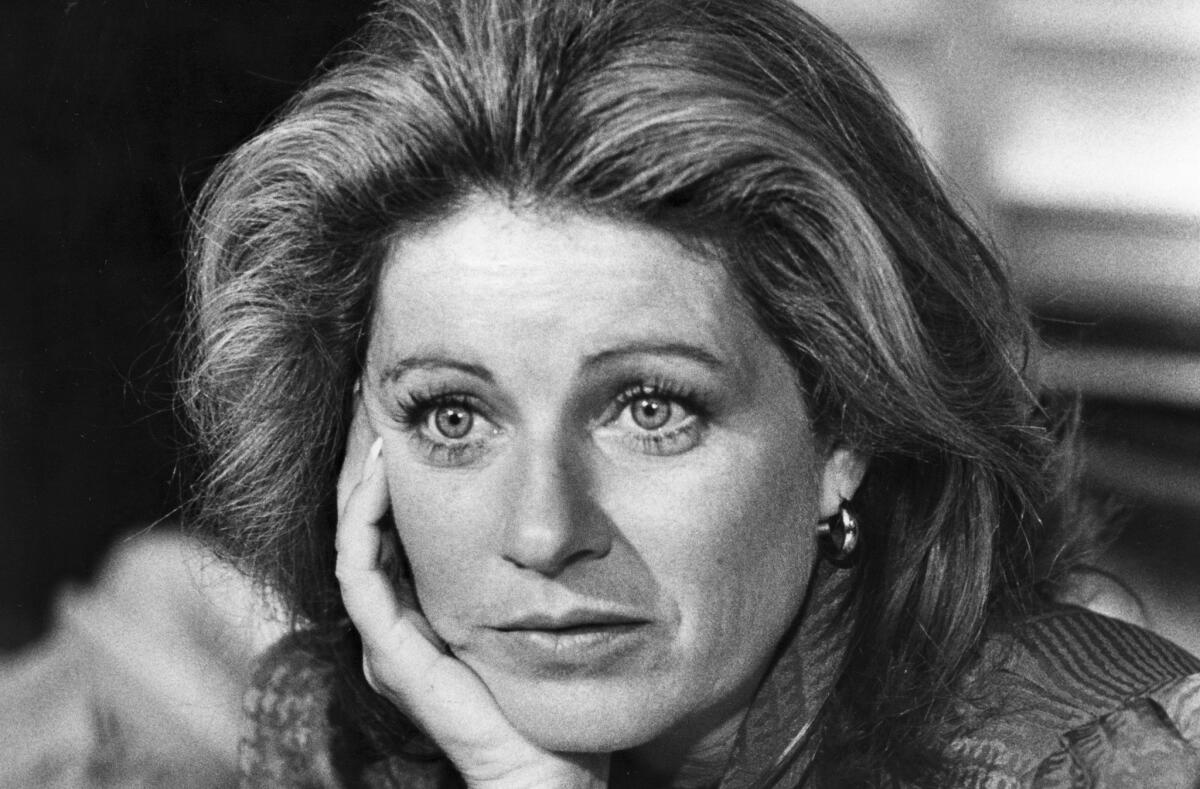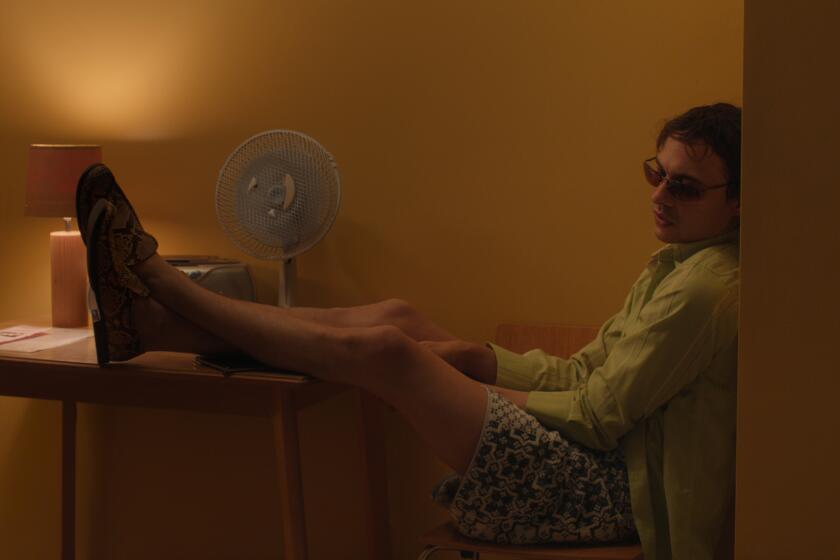L.A. Times film critic: Why I’ll never forget Oscar winner Patty Duke

- Share via
I always thought I would see Anna again. We hadn’t been in touch for years, but our collaboration had been so intense that not connecting again was inconceivable. Now it’s never going to happen.
Anna, known professionally as Patty Duke, died with terrifying unexpectedness Tuesday at the age of 69. As the co-writer of her “Call Me Anna” 1987 autobiography, I spent a couple of years in the mid-1980s working closely with her, an experience so intense it might have been yesterday.
I interviewed her for hours in her West Los Angeles home. I spent time with her sons Sean and Mackenzie Astin, was on the Georgia set of the TV movie where she met her future husband, Michael Pearce, but most of all I experienced the force of her personality, her energy, unblinking honesty and irresistible sense of humor.
I’d met her on assignment for TV Guide, and her story of what she had gone through as the manipulated child star of the hugely popular “The Patty Duke Show” and her struggles with manic depression so riveted me that I came back a month later and asked whether she wanted to collaborate on a book.
“I’ll ask you questions, we’ll tape record your answers, and the book will sound like you wrote it,” I told her. Her reply came immediately and with what I came to recognize as her trademark directness: “How can you do that?”
I was so flummoxed that I said the first thing that came into my mind: “I don’t know, but I can do it.” A light of recognition came into her eyes and she said, “I know just what you mean. That’s the way I feel about acting.” And so our adventure began.
Throughout the interview process, Anna flinched from nothing. Not the way her managers, John and Ethel Ross, stage-managed her life as a young star, changing her name from Anna Marie Duke to Patty Duke and maneuvering her parents out of the way, and not the terrors that came with young adulthood.
At that point, she had the freedom that came with her supporting actress Oscar for playing Helen Keller in “The Miracle Worker” (at 16, she was then the youngest person ever to win an acting Academy Award), but she also suffered from bipolar disorder, an illness that would go undiagnosed until her 30s. That led to wildly erratic actions, including a marriage that lasted 13 days.
She was justifiably proud of having survived her adversity and prospered to the point where her peers had elected her president of the Screen Actors Guild. “Call Me Anna” starts with an anecdote about taking a SAG meeting with Sid Sheinberg, then president of MCA, in the same office where 15 years earlier she had thrown a Mickey Mouse clock at him.
Her reason for writing the book, in fact, was to help other people who were suffering from this disorder, then known as manic depression, to let them know there was hope for them if they sought treatment as she had. In this she was wonderfully successful, so much so that she later wrote another book, “A Brilliant Madness,” solely about living with this illness.
My favorite stories in “Call Me Anna,” however, are not the grim ones but others, the ones that feature humor, like her Catholic childhood memory of playing nun with a girlfriend: “Assign a lot of homework, whack the table with a ruler, fight about who was in charge. ‘You were the Mother Superior last week. Let me be Mother Superior.’ We played nun for hours.”
I also remember her telling me about the first time the pre-movie theatrical version of “The Miracle Worker” played before a live audience in its Philadelphia tryout. The production received 18 curtain calls, leading an older costar, Kathleen Comegys, to pull her aside and advise her, “ ‘Well, my little dear, I want you to take a moment and really remember this, because it doesn’t happen very often.’ Which was the understatement.”
Perhaps what I remember most vividly about Anna was the way she managed to distill wisdom out of the worst things that had happened to her. Here is advice she took from then-husband, actor John Astin, who told her at an especially bleak moment, “If you keep living the truth of your life, that, not the mistakes or exaggerations, is what will endure. If you live your life in truth, the truth will out.”
The other words from Anna that I remember have special poignancy now. “How odd to try to sum up all I feel for and about you in just a few words,” she wrote when she signed my copy of our book. “It would take yet another lifetime.”
I’m so terribly sad that that lifetime is no more for Anna. There’s no getting over that.
More to Read
Only good movies
Get the Indie Focus newsletter, Mark Olsen's weekly guide to the world of cinema.
You may occasionally receive promotional content from the Los Angeles Times.






